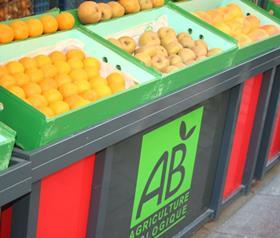
The boom in French organics could be affected by higher prices after government funding for the industry was cut last year.
Speaking at medFEL, in Perpignan, economist Bruno de Moura Fernandes said consumer demand for organic produce remains high in France, with 70 per cent of shoppers buying organic on a monthly basis.
“Since 2012 there has been a big boom in organic produce, which really took off in 2014,' Fernandes said, adding: “It’s no longer a niche market”.
His co-panelist Dominique Senecal, of organic retailer Biocoop, said there was “huge opportunity” for the organic market, which was enjoying double digit growth.
Yet expansion in organic production faces challenges, including higher labour costs, innovation, and funding, according to Fernandes. He told the audience government cuts to organic industry mean prices could go up.
“This industry depends on state funding and tax credits and financial schemes, some of which were removed by the government last year.
“You could offset government cuts with increased prices, but if it’s good for society it should remain affordable. If you increase the prices how much are the consumers ready to pay? One survey said 40 per cent are willing to pay for more.'
Fernandes said technology, and an increase in farm size would also help organics match consumer demand.
“There are sensors that make it possible to anticipate disease by using colour sensors, it’s now easy now to anticipate and apply corresponding treatment.
“Organic farming requires one worker per 20 hectares in traditional farming, which is twice as much as non-organic farming. That means you’re going to increase the costs, affecting profits. One solution is to have larger units with larger surface area, by increasing size you increase yields more and more surface area you can have higher quality produce, with less contamination from neighbouring plots.”



